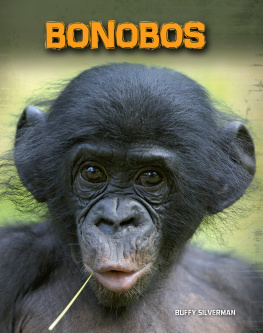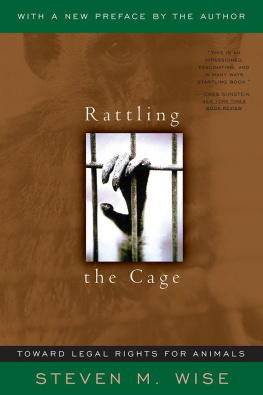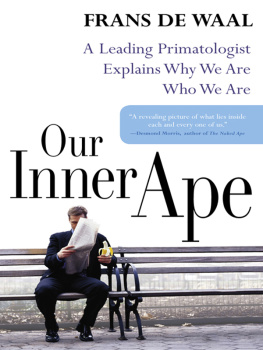Empty Hands, Open Arms
Also by Deni Bchard
Cures for Hunger
Vandal Love

2013, Text by Deni Bchard
All rights reserved. Except for brief quotations in critical articles or reviews, no part of this book may be reproduced in any manner without prior written permission from the publisher: Milkweed Editions, 1011 Washington Avenue South, Suite 300, Minneapolis, Minnesota 55415.
(800) 520-6455
www.milkweed.org
Published 2013 by Milkweed Editions
Cover design by Christian Fuenfhausen
Cover photos Christian Ziegler and Getty Images
13 14 15 16 17 5 4 3 2 1
First Edition
ISBN 978-1-5713-1849-7
Milkweed Editions, an independent nonprofit publisher, gratefully acknowledges sustaining support from the Bush Foundation; the Patrick and Aimee Butler Foundation; the Dougherty Family Foundation; the Driscoll Foundation; the Jerome Foundation; the Lindquist & Vennum Foundation; the McKnight Foundation; the voters of Minnesota through a Minnesota State Arts Board Operating Support grant, thanks to a legislative appropriation from the arts and cultural heritage fund, and a grant from the Wells Fargo Foundation Minnesota; the National Endowment for the Arts; the Target Foundation; and other generous contributions from foundations, corporations, and individuals. For a full listing of Milkweed Editions supporters, please visit www.milkweed.org.

Library of Congress Control Number: 2013944089
Milkweed Editions is committed to ecological stewardship. We strive to align our book production practices with this principle, and to reduce the impact of our operations in the environment. We are a member of the Green Press Initiative, a nonprofit coalition of publishers, manufacturers, and authors working to protect the worlds endangered forests and conserve natural resources. Empty Hands, Open Arms was printed on acid-free 100% postconsumer-waste paper by Edwards Brothers Malloy.
Contents
I will take with me the emptiness of my hands
What you do not have you find everywhere
W. S. Merwin
On a sweltering afternoon, I reached the border that separates Gisenyi, Rwanda, from the city of Goma in the Democratic Republic of the Congo. The sky was cloudless, the sun glaring on the dusty, broken roadway and the windless lake that stretched alongside it. After receiving the Rwandan exit stamp in my passport, I walked around a metal gate raised by a single soldier for passing cars, though there were none.
I approached the yellow building on the other side, where an agent sat at a counter, behind an open window. He suddenly appeared engrossed in organizing his desk. He thrust his jaw and furrowed his brow, gathered papers into a pile, then spread them like a stack of cards. He scanned the pages, moving his head back and forth, as if hunting the source of a grave injustice. Id often seen officials do this, demonstrating self-importance, making travelers wait, creating an atmosphere of disapproval and difficulty, so that when they finally took the passport, it would seem natural for them to find fault and demand an additional payment.
Across the street from the yellow building, in what appeared to be a small guardhouse, a door opened, and another agent stepped out, perspiration beading on his round face. He hurried over, smiled at me, and reached for my passport. The first one grunted and shook his head, sat back in his chair and crossed his arms, staring off in anger.
The new agent stepped into the yellow building, behind the counter, and flipped open a book of smudged graph paper. He wrote my passport information, asking my profession and, when I said crivain, writer, what I would be writing.
A book on conservation, I replied in French, on tropical forests and natural resources, and endangered great apes. He listened, his eyebrows raised, nodding as if I were corroborating a view he had long held. Seeing his look of genuine interest, I offered more details: my planned visit to a community-based reserve in the Congos quateur Province, the importance of conservation not only for the wildlife, but also for the local people.
I showed him my letter of invitation, and he studied it, the page explaining that I would help protect biodiversity by writing a book about the Bonobo Peace Forest... and raise up the image of the DRC in its conservation efforts. When Id received it a month before, the ambitious statements surprised me. The letter was necessary for my visa, and I was beginning to understand that the Congolese who composed it must have thought it important to impress officials. Now, as this one read it, he nodded repeatedly. When he finished, he flashed me a broad smile and thanked me, with what sounded like earnestness, for having come to the Congo. He stamped my passport and said, Bon voyage.
As I walked, jumbled concrete buildings and a few sprawling hotels cluttered the descending land between the road and the rocky shore of Lake Kivu, its waters reaching to a hazy blue line at the horizon. Five young men on motorcycles shadowed me, asking if I wanted a ride, though I could easily reach the hotels on foot. Where the road branched inland, the city appeared empty, a ghost town but for two white UN Land Cruisers racing in the distance, lifting plumes of dust.
It was hard not to be vigilant. From my readings, I had mixed impressions of Goma, a backpackers haven that, in the almost two decades since the Rwandan genocide, had become the epicenter of a chronic warzone. To make matters worse, in 2002, about 40 percent of the city, then home to more than half a million people, was destroyed in the eruption of Mount Nyiragongo. A stream of lava at times two thirds of a mile wide had poured through. Even now, volcanic rock protruded from the dirt where the roads were unpaved, catching at the wheels of passing motorcycles.
I was most struck by how the Congolese looked at me. Rwandans and Ugandans were used to visitors, and even those who wanted to sell something gave no more than cursory attention, whereas the Congolese I passed studied me, as if to see who was before them, to know why I was there. They carried more scars, on foreheads and cheeks, or had missing teeth, a droop in the corner of an eyelid, hints of old injuries in the way they walked, positioned themselves to pick up a bag, or rode a motorcycle. They gazed at my eyes, narrowing their own, at once cautious and curious. But when I smiled, they smiled back quickly, as if relieved.
I spent that night in the only hotel I could find with a vacancy, the others filled with the personnel of NGOs. My room was more luxurious than I expected, with polished wood cabinets and shiny bathroom fixtures, though nothing quite worked. Electric sockets sizzled when I wiggled the plug, but gave no power; the shower head dripped, and none of the doors, bathroom or wardrobe, sat well on its hinges.
I was too tired to care, but after I lay in bed, I couldnt fall asleep. The next day, Id fly to Kinshasa, one of Africas most populous and chaotic cities. If all went to plan, a week later I would head into the forest, either by dugout canoe or bush plane. Id looked at maps, at satellite images of the Congo basin rainforest, the second largest on earth after the Amazon, its hundreds of rivers the real highways, far more perceptible than the occasional yellow line of a dirt road. How would it feel when the only clear space was that surrounding a few huts, each village an island of sky? If you walked out, you traveled for weeks beneath the trees, barely seeing the sun.
Next page









